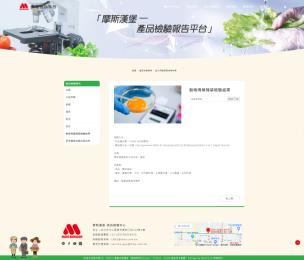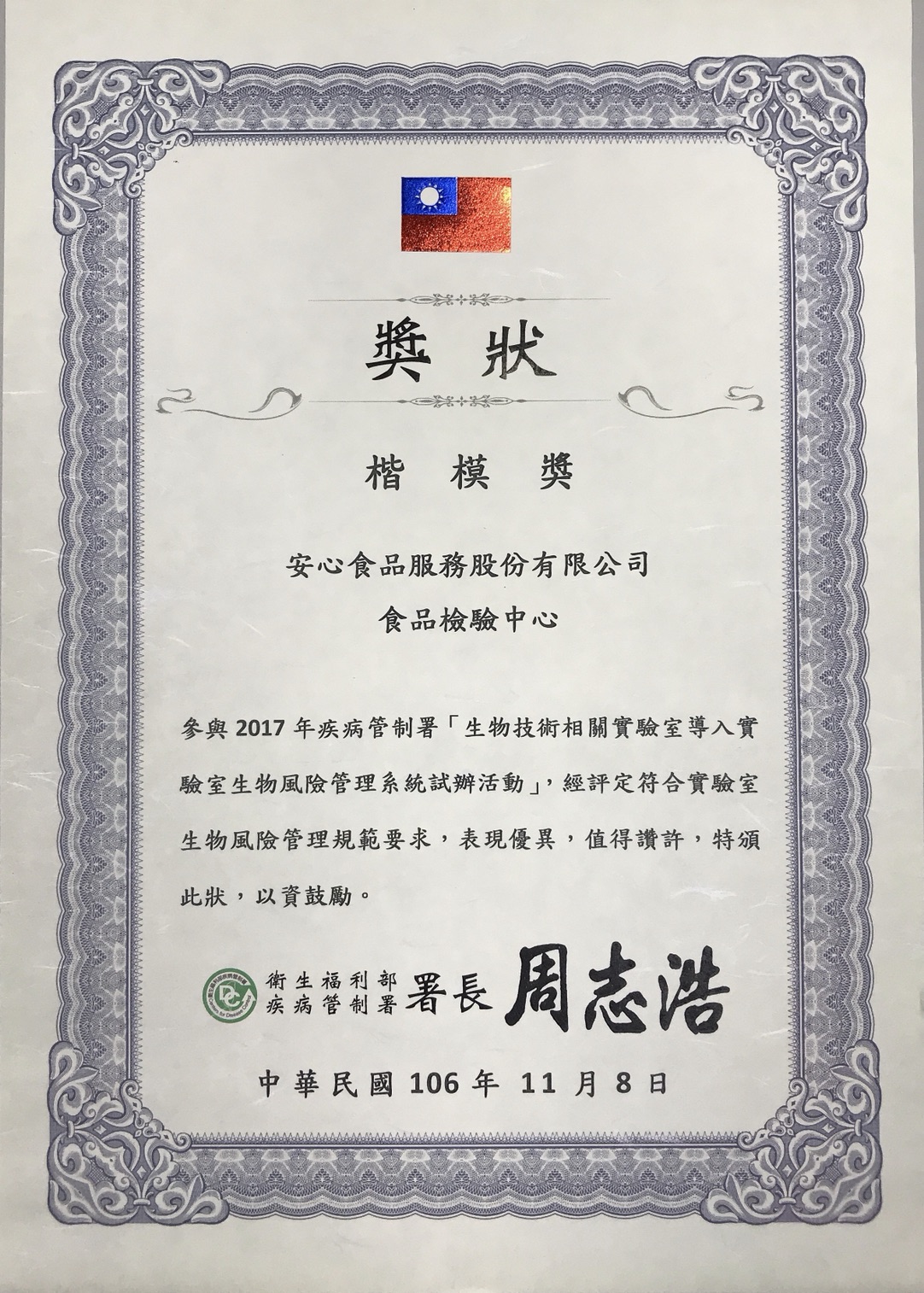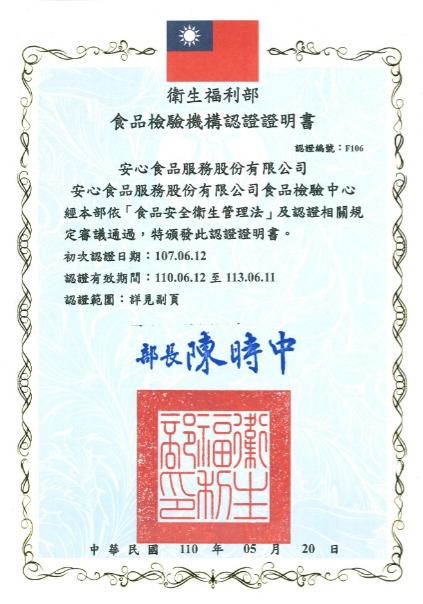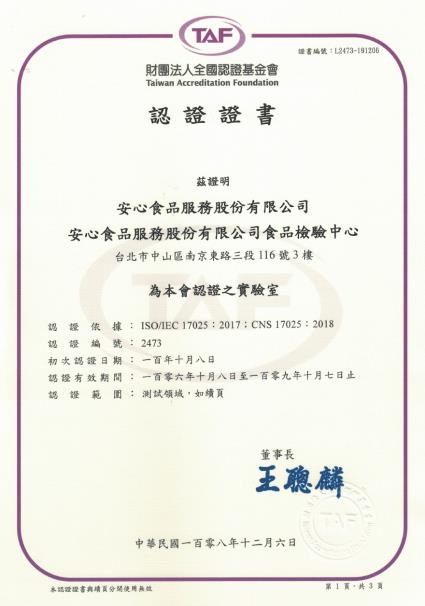Certified Laboratory
An-Shin Food Inspection Center is the first and only dual-certified microbiology laboratory in the fast food industry, which obtained both TAF and TFDA certifications. Our inspection report is recognized by the Asia-Pacific Laboratory Accreditation Alliance Co-operation Mutual Recognition Arrangement (APLAC MRA), and the International Laboratory Accreditation Cooperation Mutual Recognition Arrangement (ILAC MRA). "Professional and accurate inspection technology, Strict quality control procedures, Satisfy customer needs, Fairness and Confidentiality" are the principles of Food Inspection Center. Our quality and operations has reached the international standards and monitored by triennial extended evaluation and random inspections with strict certification process and supervision.
In 2020, the Food Inspection Center passed the international certified extended evaluation and 3 audits by government agencies. Besides obtaining the TFDA Quality System Regulations certification in April, we passed the TAF extension evaluation in October. We always comply with the international and government regulations to monitor our quality and operations, and ultimately reach the international standards. Through the continuous development of inspection methods, we hope to ensure the food safety of MOS Burger and services.
-
2010
●Established Food Inspection Center toensure food safety. -
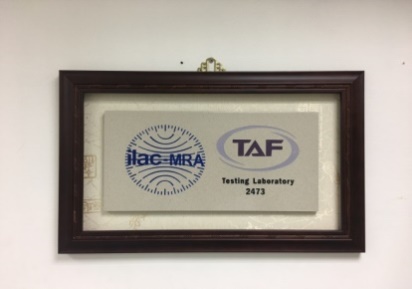 2011
2011●Received Taiwan Accreditation Foundation (TAF)certification (No. 2473). -
2016
●Introduce d new testing method-Rapid Test for Ractopamine and Clenbutero, and Antibiotic Test Kit. -
2017
●Successfully introduced the “Laboratory Biological Risk Management System ” and was awarded with the “Role Model of the Year” in November, becoming the first laboratory to introduce management system in Taiwan fast food industry.
●Participated in several proficiency tests by recognized organizations such as UK Central Science Laboratory-FAPAS, Taiwan Food Industry Development Research Institute, and Super Laboratory Co., Ltd. -
2018
●Obtained TFDA certification from the Ministry of Health and Welfare (No. F106), becoming the first and only TAF and TFDA certified microbiology laboratory in the fast food industry. -
 2019
2019●Obtained new version of TAF “General requirements for the competence of calibration and testing
laboratories” (ISO 17025: 2017; CNS 17025: 2018) certification.
●Completed the introduction of the Enterobacteriaceae testing method before the official implementation of
regulations in July 2021. -
2020
●Obtained the new version of “TFDA Quality System Regulations” certification, and fully comply with the
standard operations of Ministry of Health and Welfare.
●Passed the TAF extension evaluation and signed the International Laboratory Accreditation Cooperation Mutual Recognition Agreement
(ILAC-MRA).
Employees from the Food Inspection Center participate in domestic and international seminars, education and training every year to improve professionalism. In September 2020, we were invited by the Taiwan Centers for Disease Control to an experience sharing session on Biological Risk Management System. In order to ensure the continuous monitoring and improvement of Food Inspection Center, we invited internal audits from same industries since 2018 for more objective suggestions to achieve complete laboratory operation and quality management system.
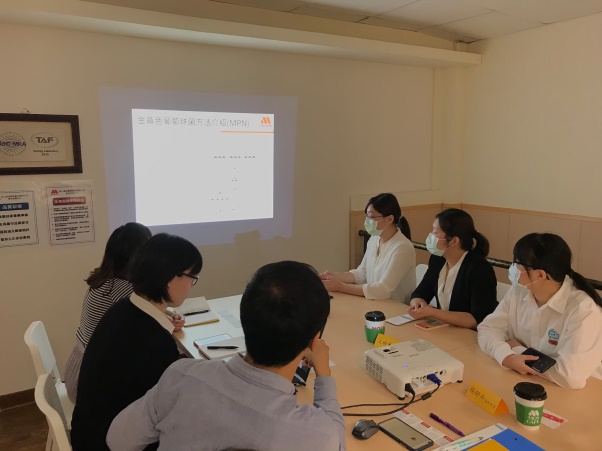
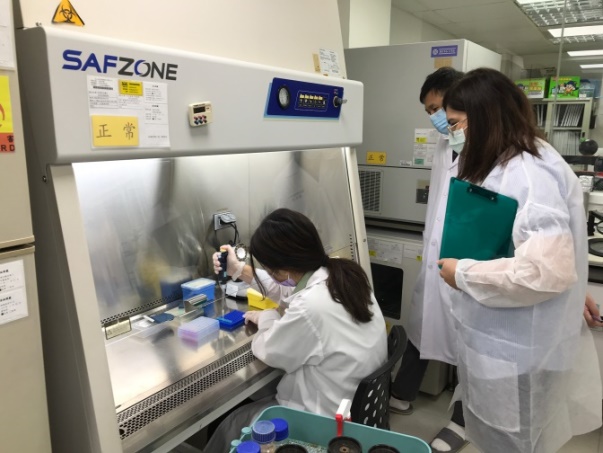
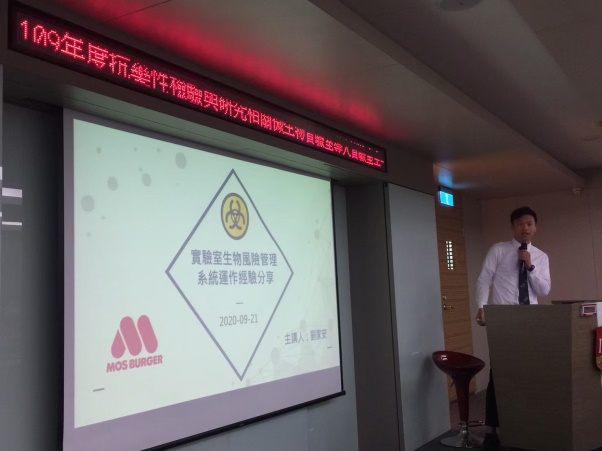
Internationally Recognized Proficiency Tests
Accuracy is one of the goals of Food Inspection Center. In line with the Quality Policy formulated by Food Inspection Center, we take part in domestic and international proficiency tests every year, including the tests held by UK Central Science Laboratory-FAPAS and Super Laboratory Co. Ltd. in Taiwan. In 2020, we conducted 15 tests for the common hygienic indicator bacteria in food and drinking water with "satisfactory" results.
Internationally Recognized Proficiency Tests In-advance Deployment of 2021 Newly Added Sanitary Indicator Bacteria-Enterobacteriaceae testing certification
In 2020, we took the Bacillus cereus in Cooked Rice proficiency test to ensure the food safety of our signature rice burger. Besides, we completed the Enterobacteriaceae testing certification as an advanced deployment for the new sanitary indicator bacteria that will be added in July 2021. Enterobacteriaceae covers more bacteria genera such as Salmonella and Shigella, which is a more typical and common indicator bacteria for food safety monitoring compared to E.coli. The Food Inspection Center obtained TAF Enterobacteriaceae testing certification and passed the proficiency test held by the Food and Drug Administration in November after introducing the Enterobacteriaceae testing method in 2019. These achievements have proved the professional proficiency of Food Inspection Center, and we aim to push ourselves to the international standard of food safety management.
Inspection Items provided by Food Inspection Center
In 2020, we took the Bacillus cereus in Cooked Rice proficiency test to ensure the food safety of our signature rice burger. Besides, we completed the Enterobacteriaceae testing certification as an advanced deployment for the new sanitary indicator bacteria that will be added in July 2021. Enterobacteriaceae covers more bacteria genera such as Salmonella and Shigella, which is a more typical and common indicator bacteria for food safety monitoring compared to E.coli. The Food Inspection Center obtained TAF Enterobacteriaceae testing certification and passed the proficiency test held by the Food and Drug Administration in November after introducing the Enterobacteriaceae testing method in 2019. These achievements have proved the professional proficiency of Food Inspection Center, and we aim to push ourselves to the international standard of food safety management.
|
FAPAS |
|
|||||||
| Category | Inspection Items | |||||||
|---|---|---|---|---|---|---|---|---|
Microbiological tests |
Test methods certified by TFDA Food: Aerobic Plate Count, Coliforms, Escherichia coli (E. coli) |
|||||||
| Test methods certified by TAF Food: Aerobic Plate Count, Coliforms, E. coli, Staphylococcus aureus, Salmonella, Listeria monocytogenes (Added in 2020), Enterobacteriaceae (Added in 2020) |
||||||||
|
Methods referred to TFDA approved test methods and recommended methods
Food: Staphylococcus aureus, Enterobacteriaceae, Bacillus cereus (Added in 2020), Staphylococcus aureus enterotoxins (Added in 2020) |
||||||||
| Methods referred to Association of Official Agricultural Chemists (AOAC) approved test methods Food: Total Aerobic Plate Count, Coliforms, E. coli, E. coli O157:H7 |
||||||||
| Test methods for total aerobic plate count and coliforms using environmental swabbing Dry swab: Refers to the test method by Bureau of Social Welfare and Public Health, Tokyo Metropolitan GovernmentWet swab: 3M e.Swab (BPW) |
||||||||
|
Chemical tests
|
Rapid Bioassay for Pesticide Residues (RBPR) developed by Council of Agriculture, Executive Yuan Pesticide residues: Organophosphate (OP) pesticides and carbamate pesticides |
|||||||
|
Test methods for antibiotics and clenbuterol in fresh meat, eggs, and seafood
Rapid antibiotic screening Premi®Test Clenbuterol 3-in-1 Rapid Test Kit (Clenbuterol / Ractopamine / Salbutamol) |
||||||||
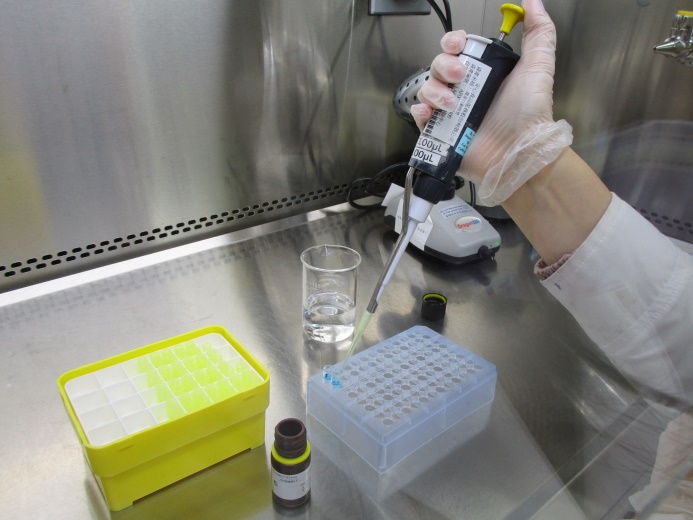 .
.
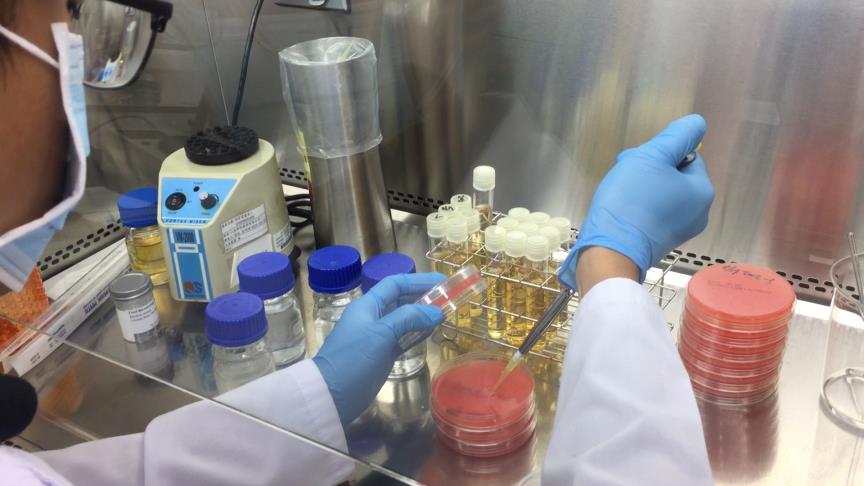
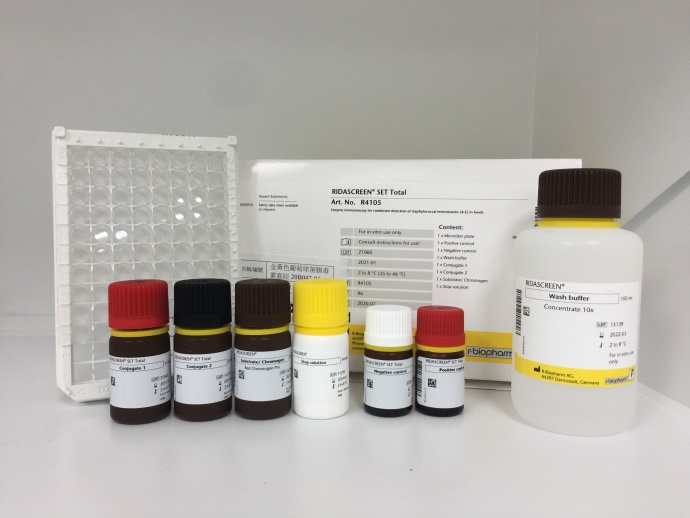
The total expenses of Food Inspection Centre in 2020 was NT$ 6,683 thousand , including the third party inspection fees NT$1,675 thou-sand, comprised 4.86% and 0.13% of the annual net operating profit and sales revenue respectively.
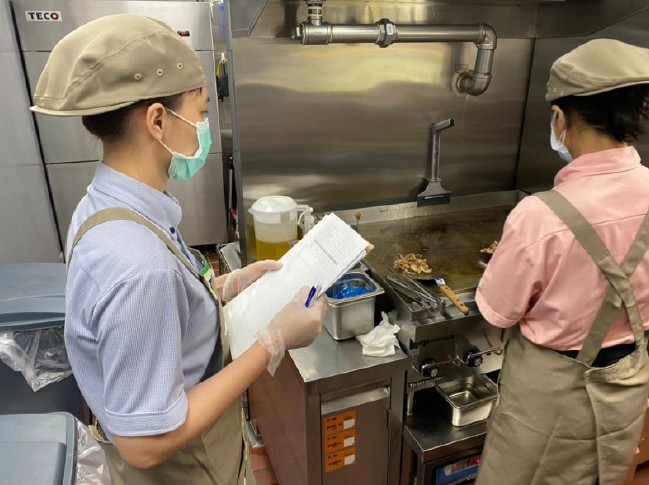
Self Microbiological Testing
In 2020, the Food Inspection Center has conducted 2,361 microbiological testing on products, drinks, ice, water quality, and other food materials. 1,995 of them passed the test, while the rest were required to make corrections according tho the improvement plans propsed by the Quality Assurance Department . Besides, the hydroponic vegetables produced by An-Shin Smart Farm are also tested periodically after hasverting to ensure quality.
Rapid Bioassay for Pesticide Residues (RBPR)
We adopt the rapid bioassay for pesticide residues (RBPR) developed by Council of Agriculture of Executive Yuan and conduct proactive tests on organophosphate pesticides and carbamate pesticides. The Food Inspection Center is an inspection station under the guidance of the Agricultural Research Institute (Inspection station number: 206) and we have 2 certified technicians for pesticide residue testing in 2020.
551 RBPR tests were conducted with 100% pass rate.
Rapid Test for the Detection of Veterinary Drug Residues
In order to improve the inspection ability and increase the monitoring frequency of fresh meat, eggs, and seafood ingredients, the Food Inspection Center has been using Clenbuterol rapid testing and antibiotic testing kits since 2016. The self monitoring has been conducted earlier than the official rule announcement about the 3 common animal drugs (Clenbuterol/Ractopamine/Salbutamol). In terms of meat used, MOS Burger uses Taiwan pork as the the main raw material in pork products, which has locally sourced label and we conduct periodical tests to ensure government regulations compliance.
193 rapid tests for veterinary drugs residues (Antibiotics and Clenbuterol) were conducted with 100% pass rate.
Concerning the potential risks in our food such as preservatives, heavy metals, animal drugs residues, antibodies, pesticides, and plasticizers, and etc., we perform monthly third-party inspection on total plate count, Coliform, Escherichia coli, Staphylococcus aureus and Salmonella. We strive to ensure the food safety and reassure our customers with dual inspections.
Annual number of tests conducted for pesticide and animal drugs
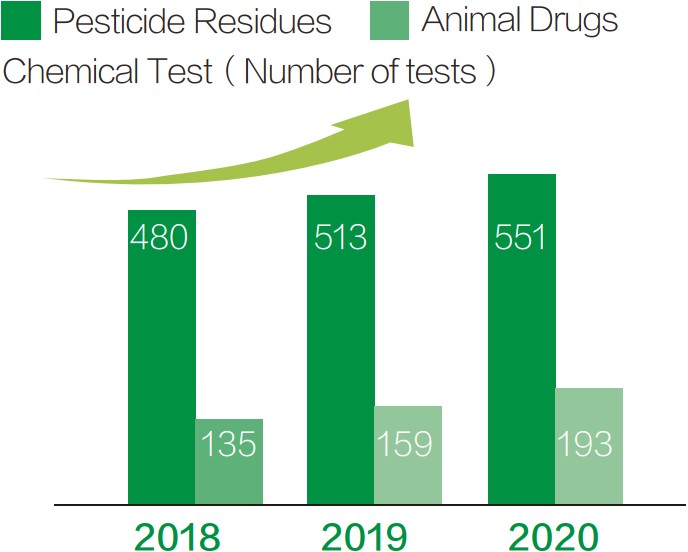
Food Transparency -An-Shin Information Platform
The Food Inspection Team guarantees our food safety. In 2019, they launched the An-Shin Information Platform (lab.mos.com.tw) which constantly updated the inspec-tion results of ingredients and raw materials used, and publicly disclosed the results by third-party inspection on pestiside and animal drugs residues. This has built a bridge of communication with consumers as they are able to search for the informa-tion related to ingredients and raw materials through the website. Furthermore, the Food Inspection Center participated in the Kaohsiung Food Show and Taipei International Food Show in 2020. They shared the knowledge about micro-biology and introduced the ATP luminometer to the public, and helped the public to understand the importance of food safety and An-Shin’ s missions. Throughout the years, An-Shin commits to food safety and manages every process from the suppliers and intermediaries to table to provide customers with safe and healthy meals. Adher-ing to the business philosophy of “Contribute to Humanity and Society” , our Food Inspection Center expanded its services in 2019 and started to accept external cases. A total of 183 inspection services were offered to external organizations in 2020 and we will keep providing inspection services to the public in future.



